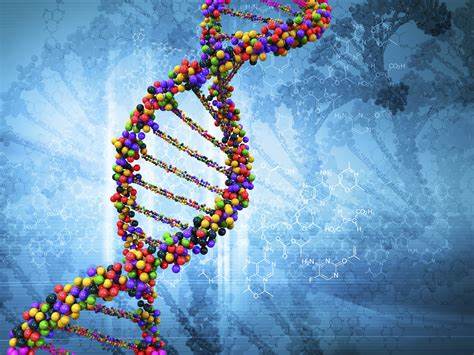
“”This is a major milestone for patients,” says Jennifer Doudna of the University of California, Berkeley, who shared a Nobel Prize for her work helping develop CRISPR.
“While these are early data, they show us that we can overcome one of the biggest challenges with applying CRISPR clinically so far, which is being able to deliver it systemically and get it to the right place,” Doudna says.
CRISPR has already been shown to help patients suffering from the devastating blood disorders sickle cell disease and beta thalassemia. And doctors are trying to use it to treat cancer and to restore vision to people blinded by a rare genetic disorder.
But those experiments involve taking cells out of the body, editing them in the lab, and infusing them back in or injecting CRISPR directly into cells that need fixing.
The study Doherty volunteered for is the first in which doctors are simply infusing the gene-editor directly into patients and letting it find its own way to the right gene in the right cells. In this case, it’s cells in the liver making the destructive protein.
“This is the first example in which CRISPR-Cas9 is injected directly into the bloodstream — in other words systemic administration — where we use it as a way to reach a tissue that’s far away from the site of injection and very specifically use it to edit disease-causing genes,” says John Leonard, the CEO of Intellia Therapeutics, which is sponsoring the study.
Doctors infused billions of microscopic structures known as nanoparticles carrying genetic instructions for the CRISPR gene-editor into four patients in London and two in New Zealand. The nanoparticles were absorbed by their livers, where they unleashed armies of CRISPR gene-editors. The CRISPR editor homed in on the target gene in the liverand sliced it, disabling production of the destructive protein.“
“Although it’s too soon to know whether the CRISPR treatment will ease the symptoms of the disease, known as transthyretin amyloidosis, the preliminary data reported today are generating excitement about what could be a one-time, lifelong treatment. “These are stunning results,” says gene editing researcher and cardiologist Kiran Musunuru of the University of Pennsylvania, who was not involved in the trial. “It exceeds all my expectations.”
The work also marks a milestone for the race to develop treatments based on messenger RNA (mRNA), the protein-building instructions naturally made by cells. Synthetic mRNAs power two COVID-19 vaccines being given to millions of people to fight the coronavirus pandemic, and many companies are working on other mRNA vaccines and drugs. The new treatment, which includes an mRNA encoding one of CRISPR’s two components, “begins the convergence of the fields of CRISPR and mRNA,” says cardiovascular researcher Kenneth Chien of the Karolinska Institute, a co-founder of Moderna, which makes one of the COVID-19 vaccines and is also developing mRNA drugs. “
Comment: Am I mistaken in thinking this is a really big deal? The usual collection of naysayers will join in the cuckoo’s song to pooh pooh the whole thing. pl

I would have to say that this sounds like a VERY big deal and the start od something possibly revolutionary in medicine.
This certainly does appear to be a “really big deal.”
On the naysayer side of things, how much would CRISPR treatment cost the average patient (or his/her insurance provider)?
https://innovativegenomics.org/blog/paying-for-crispr-cures/
Because a dear friend is battling cancer, I’m aware of a recently-approved gene-altering treatment. It involves extraction, then alteration, then cultivation, then infusion – a process that may take a few months. To be able to skip three steps and DIRECTLY infuse a treatment is a HUGE leap forward. Wow, I hope it’s successful!
This type of capability will be the future, where DNA gets re-programmed. Cancer is a good example where a cell’s DNA goes haywire.
mRNA was supposed to do that. Moderna staked it’s business on therapeutics for cancer and other diseases. They were on the ropes financially until Covid bailed them out extraordinary profits.
This development appears to be wonderful. There are a few things to consider.
Who is going to fund the clinical trials for a one-shot cure rather that a treatment regime? If the cure actually works, then the entire cost of approval and profit must be borne by a limited number of patients receiving a single treatment.
In 2007 while my deceased wife was fighting her losing battle against colon cancer, a group at MD Anderson published a promising study involving gold nanoparticles modified to bind to a cancer cell receptor, then heat the gold with microwaves to thermally destroy just the cancer cells. We attempted to enroll her in any clinical trials. (Our doctor knew the PI on the project.) So far as I know, the treatment never made it to trial. I pray this case is different and look forward to the results of an actual patient treatment.
If humanity makes it another 500 years, the marvels to be seen in the biological sciences I imagine will be breathtaking. I’m of the opinion that the biological sciences have finally started to develop the tools and knowledge to make extraordinary gains in the centuries ahead. Including dramatic life extension. This period of time in history will be looked back as the beginning of this renaissance.
We turn now to the philosophical discussion regarding a 300 year life extension elixir choice offered the heroine in the Czech opera The Makropolus Case. Disease and affliction control is one thing; pure ‘life extension” is yet another very weighty choice. The opera both boldly and yet still ambiguosly tackles this very topic.
Deap, SO glad you mentioned Janacek’s Makropoulus Affair.
Gives me the chance to mention my favorite scene from the opera.
(You can guess why 🙂
https://youtu.be/gPOkG40fwT0
What a healthy middle-aged woman!
BTW, for the interesting plot see
https://en.wikipedia.org/wiki/The_Makropulos_Affair_(opera)
Sure, we’ll use CRISPR to re-engineer our DNA. What could possibly go wrong?